Many companies are creating web hosting services and apps on various blockchains. But before diving into blockchain-hosting, it’s important to understand the history, technology, and applications of blockchain in general. It will give you a background to understand the potentials it has for your web hosting business.
Points of discussion in this guide include:
The Beginning of Blockchain
Blockchain started shrouded in mystery. In 2008, a person named Satoshi Nakamoto published a white paper called “Bitcoin: A Peer-to-Peer Electronic Cash System.” The real identity of Satoshi Nakamoto is still unknown. The white paper described bitcoin and the technology of blockchain. By 2009, a community of engineers with the help of Nakamoto built the first bitcoin blockchain. The community was in touch with Nakamoto only through emails and online forums.
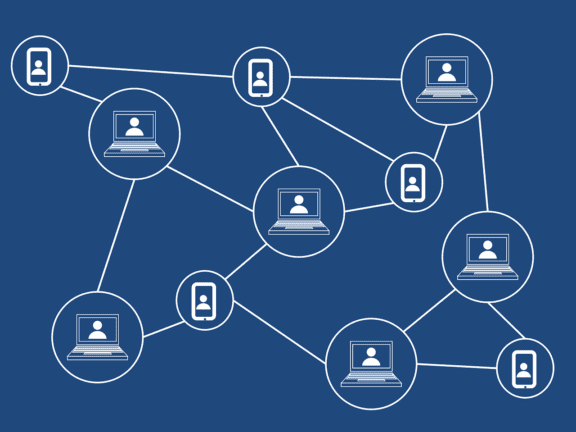
The early adopters of bitcoin were interested in the technology because of the financial crisis. They wanted to build a system that wouldn’t require regulations. It would be a system to exchange value freely without censorship. But soon the adopters started to see the potentials. As the word got around that bitcoin was a new form of money and users could earn bitcoins through mining or volunteering to maintain the blockchain, the community kept growing. The value of Bitcoin started to grow.
In 2017, bitcoin has shown explosive growth. The price of bitcoin almost reached $20k with a market cap of more than $160 billion. The meteoric rise of bitcoin has surprised even the most ardent supporters.
The Blockchain Technology
The mathematics of blockchain technology is complex. But the concept of blockchain is easy. At the core, blockchain is a digital ledger that is maintained in a distributed network.
Most companies today record their transactions in a database. Modern databases work as ledgers. However, the company who owns the database is responsible for maintaining the integrity of those transactions. Whenever there is a value exchange, we trust these companies to keep accurate records. The institutions that keep track of these transactions can be financial institutions like banks or credit card providers, they can be e-commerce sites like Amazon or eBay. When we are buying a product from a supermarket or e-commerce site, the third parties are guaranteeing the transactions. It means that whenever there is a transaction a third-party is a necessity. It isn’t a new phenomenon. In ancient times, instead of banks, people used village elders or other means to keep transactions honest and create trust.
Blockchain has the potential to change the dynamics of this transaction. In the current system, when two people exchange value with each other (goods, services or anything else), a third-party provides the trust factor through verifying identity, transaction amount, etc. In a blockchain, there is no need for the trusted third-party. When two people exchange values, it gets recorded digitally on the ledger using a distributed network. The records on this ledger are immutable. It means nobody can come back and manipulate the ledger entry. So two people don’t need the third person to keep track of their exchange. It is called trustless transactions.
The blockchain technology achieves trustless transactions by using cryptography. In a blockchain network, users broadcast their transactions. These transactions are picked up and collected by volunteers, also known as miners. Miners have copies of the original blockchain. After a certain amount of time, the collected transactions are packaged into a block. Then the block is added to the blockchain.
However, the block addition goes through a process. Each block is assigned a puzzle that is computationally difficult to solve. Then the miners compete against each other to solve it. The puzzle is such that even though solving it takes computational power, verifying the result is easy. The miner who solves the problem first gets to add the block. The miners who win the privilege gets rewarded with tokens from the blockchain. This works as an incentive for users to volunteer as miners.
The blocks are connected to each other through cryptographic hashes. As a result, if anyone changes even a bit in one of the blocks, the hashes will change and expose the fraud. If a user discovers a corrupted blockchain, they can just discard it and get a copy of the authentic blockchain from someone else. This immutability keeps the blockchain secure from manipulation.
Various Blockchains
Even though bitcoin is the most famous cryptocurrency and blockchain, there are others. Ethereum is significant for being the blockchain with the smart contract. Smart contracts are executable codes residing on blockchains. Under the right circumstances, these codes execute. For example, an employee can get paid through a smart contract. Whenever the end of the month comes, the smart contract will trigger a payment mechanism. There are alternative cryptocurrencies like Litecoin, Zcash, Ripple, Monero and more. New blockchains are being created every day. Companies are also playing around with private blockchains.
Applications of Blockchain
The blockchain technology has far-reaching applications. Here are a few examples to give you an idea of the significance of this technology:
- Financial institutions and banks can use it to improve their processes. They can store mortgages and insurance policies on blockchains.
- Medical records can be maintained on blockchains. It can also keep track of drugs. This can prevent misuse or unauthorized used of drugs.
- Maintaining Internet of Things (IoT) can be taxing for the network. Blockchain can provide the infrastructure to support the needs of this technology.
- Governments can use blockchain for maintaining land records. They can use it as a voting system.
- Web hosting services can maintain DNS on blockchains.
Where Are We Going with This?
- A study by Allied Market Research found that the blockchain-as-a-service (BaaS) market is expected to reach $15.4 billion by 2026, driven by increasing adoption of blockchain technology in various industries.
- According to a survey by PwC, 84% of companies are actively involved in blockchain technology in some way, highlighting the growing interest and adoption of this technology.
- A report by MarketsandMarkets found that the global blockchain market is expected to grow from $3 billion in 2020 to $39.7 billion by 2025, driven by increasing adoption of blockchain technology across various industries.
- The use of blockchain technology in healthcare is expected to reach $1.7 billion by 2026, according to a report by Frost & Sullivan. This is driven by the need for secure and transparent management of patient data.
- A study by IDC found that the blockchain market in the United States is expected to reach $41 billion by 2025, driven by increasing adoption in the financial services, healthcare, and supply chain industries.
- According to a survey by KPMG, 48% of executives believe that blockchain will change the way they do business in the next 3 years, highlighting the potential impact of this technology.
- A report by Accenture found that blockchain technology could save global investment banks up to $12 billion per year by reducing infrastructure costs and increasing efficiency.
- The use of blockchain technology in the food and beverage industry is expected to grow at a CAGR of 48.1% from 2020 to 2025, according to a report by Meticulous Research.
- A study by IBM found that 9 out of 10 government organizations plan to invest in blockchain technology by 2021, highlighting the growing interest and adoption of this technology in the public sector.
- The blockchain market in the Asia-Pacific region is expected to grow at a CAGR of 87.6% from 2020 to 2027, driven by increasing adoption in countries such as China, Japan, and India, according to a report by Grand View Research.
Hosting a DNS Domain on Blockchain
The link docs.ens.domains [https://docs.ens.domains/en/latest/] is hosted on the Ethereum blockchain. The support for hosting DNS domain on Ethereum blockchain is experimental. But it shows an interesting use case for web hosting and blockchain.
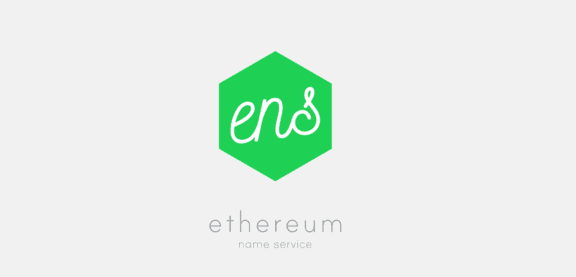
The experimental project uses ENS, Ethereum Name Service, to build the DNS service. With DNS, nameservers provide authoritative answers to queries and provide names of another nameserver. When a user is trying to resolve an issue, it asks the nameserver. If the nameserver doesn’t have the answers, it goes to the next one.
As mentioned, ENS is native to Ethereum. Its primary goal is to resolve “human-readable” names. ENS and DNS share the same objectives. But the ENS has a central database that maps from domain names to resolvers. The owner of each domain can update the resolver address. To look up a domain information, the user uses the registry to find the resolver which can find the answer to the question or query. Whiles DNS operates on the concept of zones, ENS doesn’t have zones.
You could deploy a single ENS resolver for the existing DNS hierarchy. But you will run into the trouble of DNS ownership proof which leads to the question of who will be allowed to change the registry. The experimental solution takes the approach of allowing anyone to deploy their own ENS registry and resolver and host any set of domains.
Let’s take an example. If you have deployed an ENS registry for your domain, “www.onlyawebsite.com” at the address 0x55555555. At the registrar, you tell it to set the nameserver for your “www.onlyawebsite.com” to “55555555.ns1.ens.domans.” Now the search for “www.onlyawebiste.com” will trigger the following process:
- Recursive resolution finds “www.onlyawebsite.com NS 55555555.ns1.ens.domains”.
- The gateway server “ns1.ens.domain’ receives the query. It checks for “www.onlyawebsite.com” and gets the response.
- Gateway server queries the ENS registry.
- Gateway server asks the resolver for the zonefile for “www.onlyawebsite.com” It gets back the DNS zonefile data in a compact binary form and unpacks the data in memory.
- Now the getaways can use the unpacked zonefile to reply to the original inquiry.
The hosting of DNS domain on ENS is at the experimental stage. It shouldn’t be used for production level situations. But it gives you an idea of the scope of integration that is possible with blockchain.
Blockchain Hosting and Storage
There are other companies who are making blockchain a priority. Here are some of them:
Shift
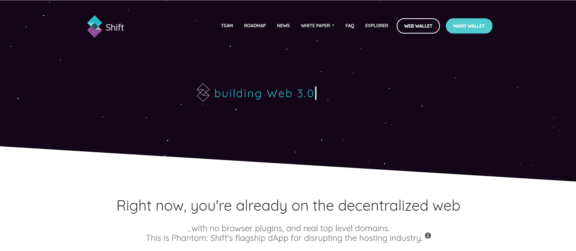
Shift advertises itself as a decentralized web. The platform allows peer-to-peer data storage and seamless monetization.
https://www.shiftnrg.org
HostCoin

HostCoin considers itself as the first web hosting service built on the blockchain. It is waiting for its initial coin offering (ICO). HostCoin intends to provide better security with blockchain based hosting.
https://hostcoin.io
Sia
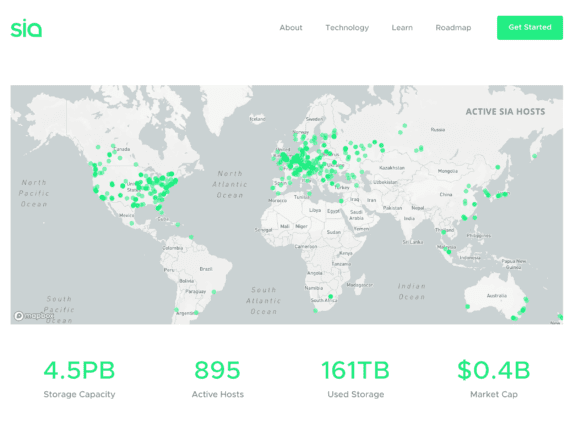
Sia is a decentralized storage platform secured by blockchain technology. Private, affordable, redundant. It leverages underutilized hard drive capacity around the world to create a data storage marketplace that is more reliable and lower cost than traditional cloud storage providers.
https://sia.tech
Storj
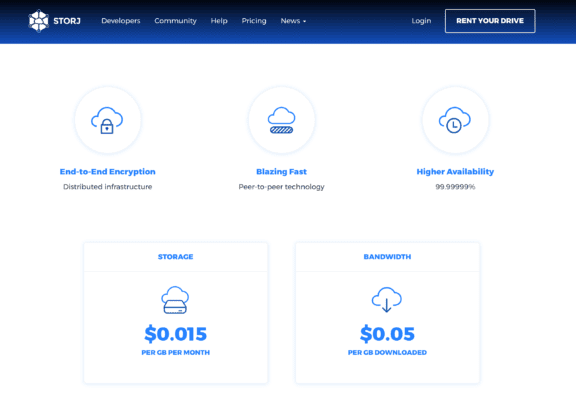
End-to-end encrypted, distributed object storage, where only you have access to your data. Powered by blockchain payments. Pay only for what you use. No setup fees, no minimum usage.
https://storj.io
SONM
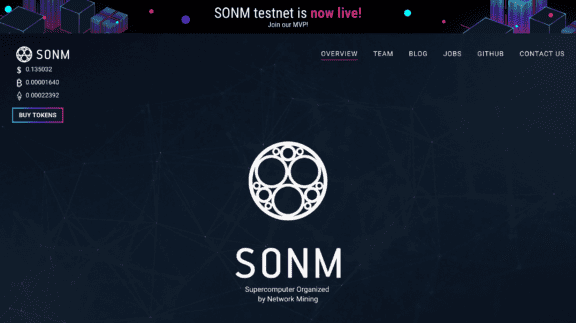
SONM is the universal fog supercomputer powered by the Ethereum blockchain. Buyers benefit from using SONM fog computing as an alternative to centralized cloud services in terms of cost-effectiveness, security, and scalability. There’s no need for infrastructure and employees – the data is stored in the fog, decentralized and encrypted on miners’ computers.
https://sonm.com
Golem
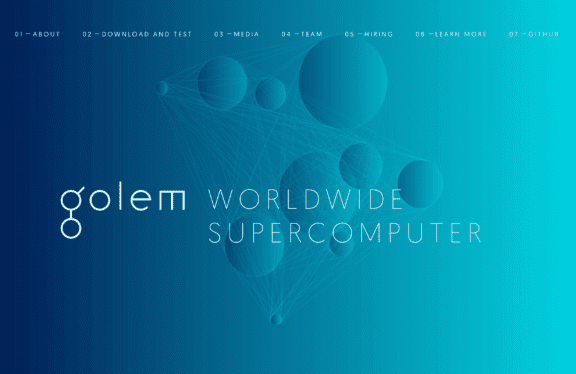
Golem is a global, open-source, decentralized supercomputer that anyone can access. Any user ranging from a single PC owner to a large data center can share resources through Golem.
https://golem.network
MadeSafe
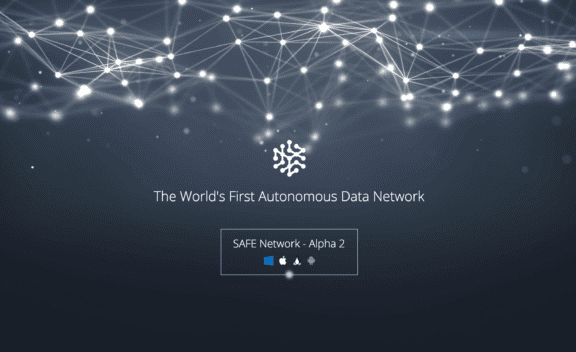
MaidSafe is building the SAFE Network, a new autonomous and decentralized data network. The network is made up of the unused hard drive space, processing power and bandwidth of its users. The SAFE Network will include storage, peer-to-peer communications, transactions, internet functionality and a wide variety of apps to name a few of its features.
https://www.maidsafe.net
Filecoin
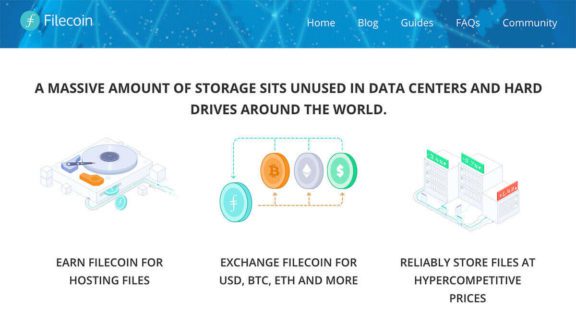
A blockchain-based storage network and cryptocurrency. Data stored in secure sectors, with strong end-to-end encryption. Put your unused storage to work by becoming a Filecoin miner. Use the Filecoin mining software to get paid for fulfilling storage requests on the Filecoin market.
https://filecoin.io
In Conclusion
Blockchain technology can be a powerful tool. However, webmasters should also be aware of the dangers. The technology is currently not highly scalable. So it’s important to test any applications on blockchain for scalability before deployment.
Let’s discuss it further in the comment section below.





A great piece that sheds much needed light on some of the great theoretical/ideological debates in the contemporary crypto space. At CleanApp Foundation, we appreciate the emphasis on pragmatism, and emphasis on Blockchain/DTL/Crypto projects that offer real social utility. Looking forward to engaging more with your crew!
blockchaintechnologies.com is a huge static content website that covers practically every single question you might have about blockchain. Additionally, the site also has a news section where stories from the largest cryptocurrency news blogs are gathered.
I added this site to this list of the 27 best cryptocurrency blogs for three main reasons. The first is that the content is absolutely amazing. It is very obvious that the writer spent A LOT of time researching about cryptocurrencies. Secondly, the UI of the website is astonishing. The colors are very well picked, the site charges in the blink of an eye and it is completely responsive. And finally, although the Blockchain Technologies blog has a couple Ads, it is very clear that the main objective of the site is to inform, and not to just make money with visitors.
The post made me realize I could host a DNS on blockchain, Though I’m still new to the crypto world. Thanks for the enlightenment.
The little or no third part requirement in financial transactions has made blockchain to be a faster and cheaper alternative in the financial industry. Great post.
As a cryptocurrency writer, I have come across several areas where blockchain was used to implement new designs, which is really great for development.
Blockchain is rightly stated as internet 2.0, the ability to utilize blockchain technology in several industries is another significant aspect of the technology.
Zosting.com has already begun their ICO and are located in the United States, which is located at http://www.Zosting.net on the Oracle POA network using ERC 20 blockchain technology.
Since Hostcoin offers something less expensive as compared to popular hosting companies, then I believe it is time to garner more support for blockchain.
As a whole, we have just begun to scratch the surface with blockchain technology. Worldwide use of cryptocurrencies is still hoovering under 1%, but, with every single crypto transaction that takes place, we move further and further down that path. Cryptos have the chance to change the world for the better. Find out how we are doing our part here:
HostCoin also offers website hoisting at https://HostCoin.Host, they even have free SSL that sure beats the $80 dollar price tag that godaddy has
You have explained very well Dmitry. I am sure you have done very good research on this topic. Blockchain is currently entering into market with endless possibilities. I have also read about Namecoin which is domain name system built under Blockchain technology.
I see you don’t monetize your blog, don’t waste your traffic, you can earn additional bucks every month because you’ve got hi quality content.
Hello! I know this is kind of off topic but I was wondering which blog platform are you using for this site? I’m getting feed up of WordPress because I’ve had problems with hackers and I’m looking at alternatives for another platform. I would be great if you could point me in the direction of a good platform.
Yes, I agree that the Blockchain technology is a powerful tool. But the dangers it entails are numerous. Truly, the technology is currently not highly scalable. And any webmaster who doesn’t test the applications on blockchain for scalability before deployment would really lop have himself to blame.
Wow. Hostcoin is built on the blockchain? Cool. I heard about the site during the launch and after navigating around it, I was really impressed with the work done on it. I’ll love to see how the ICO turns out.
The significance of the blockchain technology cannot be overlooked. Financial institutions, government, medical institutions and even web hosting services can actually benefit from this technology in one way or another. It simply makes things easier and I think things would also be done faster.
The good thing about blockchain is that there is absolutely no need for a third-party to keep track of their exchange. Records are made digitally on the ledger using a distributed network and the entry can’t be manipulated. It is indeed a trustless transactions.
No doubt, the meteoric rise of the bitcoin really surprised not just the supporters but many others. When I first heard about it, I was less interested and ignored it. But now I regret not mining bitcoin back then. I would have really made a lot of money from that single act.